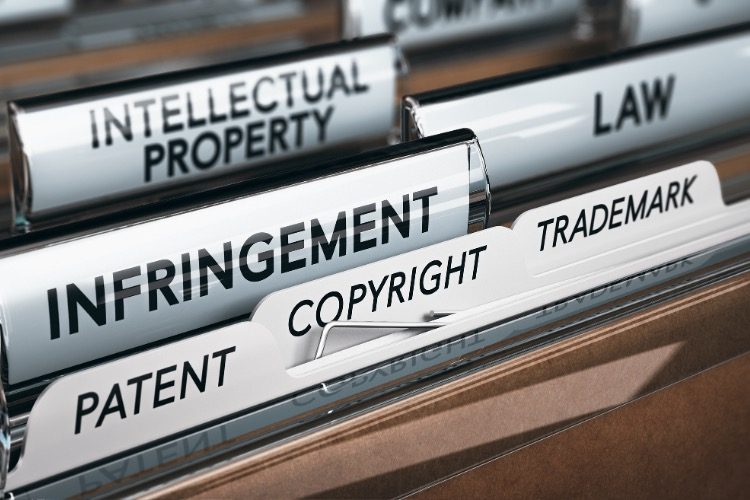
Those who have been following the decline of the U.S. patent system may wonder what can be done about the many assaults on the only right actually enshrined in the U.S. Constitution (outside the later Bill of Rights), the right mentioned in Article I, Section 1, requiring that Congress secure “for limited Times to Authors and Inventors the exclusive Right to their respective Writings and Discoveries.” This right has been injured in so many ways by bad legislation (especially the 2011 Leahy-Smith “America Invents Act”) and confused Supreme Court cases, which have limited or eviscerated the value of many patents and weakened incentives for much-needed innovation.
Many of these problems could be resolved with aggressive legislation to restore America’s patent system. Fortunately, Representative Thomas Massie (R-Ky.) has introduced patent-reform legislation designed to reverse several harmful results of bad patent law and misguided Supreme Court rulings. The goal is to restore to Americans a patent system “as the Constitution of the United States originally envisioned it.” Massie’s bill, HR 8134, is titled “Restoring America’s Leadership in Innovation Act of 2024,” or RALIA.
As I read the bill, I was elated to see so many critical issues being addressed with bold corrective measures, such as shutting down the Patent Trial and Appeal Board (PTAB), a special tribunal in the U.S. Patent and Trademark Office (USPTO) that makes it easy for infringers to invalidate issued patents, many of which belong to small businesses.
Other proposed breakthroughs include repairing the harms done by several Supreme Court decisions. These harms include destroying the ability of a patent owner to stop an infringer with an injunction — a problem akin to not being able to evict a squatter from your home. Without the right to use an injunction to exclude others from using your patented invention, the “exclusive” right in the Constitution is made a mockery. Another flawed decision made it easy to reject a patent by claiming that the topic is “abstract,” with no definition of “abstract.” That decision has hindered IP protection in the fields of software and computer technology, but has slammed innovators in many other areas. These and other setbacks from the Supreme Court could be resolved in the true spirit of constitutional checks and balances if Massie’s bill becomes law.
The bill is described in press releases as “Patent Reform Legislation Restoring ‘First to Invent’ Protection to Inventors.” The term “first to invent” refers to a principle that had long been part of the U.S. patent system. “First to invent” means that the right to a patentable invention should belong to those who first conceive of the invention and then diligently pursue it to reduce it to practice (this may entail development, testing, and filing a patent application). Under a “first to invent” system, an earlier date of invention can be important in securing inventors’ rights when conflicting patent applications are filed.
An alternative system that has been adopted in nearly every other country is the “first to file” system, in which competing claims to patent rights can be decided based on the earliest date of filing. Both systems can work, but under “first to file” there’s an advantage for big companies since small businesses often don’t have the resources to quickly prepare and file patent applications the way large companies can. This also can make it easier for IP theft to occur. For example, a hacker could learn of an invention and file a patent application before the inventor.
The pressure to switch from first to invent to first to file was largely based on the need for the United States to “be like the rest of the world” so all countries could have harmonious patent systems. But why not extend this line of reasoning to many other fields, such as giving up flush toilets, making do without adequate energy, and blocking access to unapproved websites, so we can be more like other nations? Would it not be better to invite others to adopt the patent system that made America the world’s greatest engine for innovation and economic growth for so many decades?
Addressing the first-to-file principle might not be the most critical issue in restoring our patent system, but is vitally important because our adoption of first to file was an abandonment of a specific requirement of the Constitution — the duty Congress has to secure the exclusive rights of inventors, not those able to file patent applications first. Restoring first to invent is a beautiful way to signal that this law is seeking to follow the Constitution again.
It’s easy to predict that Big Tech and their allies will despise and malign Massie’s bill. One can imagine their arguments: It will set us back decades, impede our international relations, jeopardize the global economy, slow down innovation, exacerbate global warming, and maybe even promote racism in some way.
Indeed, I wrote the previous sentence, facetiously suggesting that climate change and racism might be among Big Tech’s arguments against Massie’s bill, I wondered what would happen if I asked Big Tech’s narrative engines (also known as AI chatbots) what they thought of the bill. So I turned to Gemini, Google’s latest AI tool, and asked about HR 8134: “Will this act make America better, or will it have adverse consequences?” After noting two potential benefits (boosting innovation and prioritizing American inventors), it gave a much longer and fascinating list of problems for my query of May 7, 2024:
Potential Drawbacks:
• Slower Green Tech Development: A return to the “first to invent” system could lead to disputes and slow down the development of clean energy technologies, hindering progress on climate change.
• Patent Thickets: Easier patenting could create situations where companies hold multiple patents on minor variations of existing inventions, making it harder for others to innovate. This could stifle development in various fields, including clean energy.
• Disadvantage for Smaller Businesses and Minorities: Less stringent inventor disclosure requirements and potential for more legal battles could disproportionately disadvantage smaller and minority-owned businesses, making it harder for them to protect their inventions.Climate Change and Racial Equity:
• RALIA might unintentionally exacerbate climate change by slowing down innovation in clean energy technologies.
• The Act could also have negative consequences for racial equity by making it harder for smaller and minority-owned businesses to protect their inventions.Overall, the impact of RALIA is complex. While it could boost innovation, there are potential downsides related to climate change and racial equity.
Those wishing to restore America’s patent system to its former greatness will need to explain patiently that maintaining a PTAB that destroys or damages 80 percent of the patents of small inventors when they are attacked by powerful companies is not going to make life easier for smaller and minority-owned businesses. Boosting innovation is not going to make the climate worse. Protecting any form of property, including intellectual property, is not going to exploit women, children, and minorities. Freedom to profit from the intellectual property that inventors create without it being easily stolen or destroyed by powerful companies is a step forward for all of America. It’s time we take that step and invite the rest of the world to make their patent systems more like ours.
I’m thrilled to see someone in Congress with enough awareness about the plight of our IP system to actually craft a bold measure to fix the harm that has been done over the past 13 or so years. I would love to see the AIA millstone lifted from the necks of American inventors and small companies.
Representative Massie is an inventor, a businessman, an MIT grad, and someone who understands the harm that has been done to the U.S. patent system in recent years. I am impressed with this bipartisan effort and hope it will gain support.

